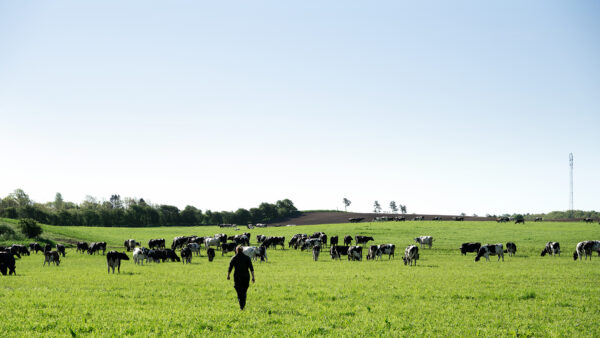Keeping you informed of legislative and regulatory changes in Europe and abroad — from lawsuits to approvals to other regulatory issues affecting your business.
Europe
Keygene expands SBG portfolio
KeyGene has announced that its Sequence Based Genotyping (SBG) patent portfolio has been expanded with the recent grant of the patent entitled “Method for High Throughput AFLP-based Polymorphism Detection” in both the United States and China. The grant of these two broad patents is the most recent addition to KeyGene’s SBG patent portfolio in Europe, Japan and the United States, which now comprises 13 granted patents. In addition, proprietary expertise and software tools enable scientists of KeyGene and its licensees to generate, analyse and apply large amounts of sequence-based marker data in a cost- and time-effective manner. “SBG is one of KeyGene’s leading products in the rapidly developing next-generation sequencing space, seeing widespread adoption for research and commercial purposes worldwide,” says Michiel van Eijk, KeyGene CSO.
ANOVE accredited with ESTA
The European Seed Association’s quality assurance scheme for seed treatment and treated seed, the European Seed Treatment Assurance (ESTA) is further establishing its position in the European Union with a fourth national agent. ANOVE is now accredited to carry out ESTA in Spain. ESTA combines a number of elements to guarantee professional, high quality seed treatment applications such as independent certification of treatment sites by accredited auditors, defined quality reference values with a uniform testing protocol, and safe use information and respective labeling for users. ANOVE’s expertise will guarantee a sucessfull roll out of ESTA in Spain. “We are very happy to welcome ANOVE, our Spanish member association, as national agent for the implementation of our European Seed Treatment Assurance scheme ESTA,” Garlich von Essen, secretary general of ESA stated. “ESTA is a key instrument to assure quality and safety for our customers and the environment and to maintain seed treatment as the most modern and most sustainable way of seed and crop protection in Europe.” Any seed treatment plant in Spain that wishes to apply for the ESTA certification should contact ANOVE.
EU Member Countries To Decide GM Policy
After years of discussion, a recently-adopted accord by the European Union will allow member countries to make their own decisions on whether or not to allow genetically modified crops. “All member states, with the exception of Belgium and Luxembourg, have given their agreement,” says Greek Agriculture Minister Ioannis Maniatis after a recent meeting with EU colleagues. The accord gives individual EU states the right to ban GM crops — even if they have already won clearance on health and safety grounds at the EU level. “The new system guarantees that the member states have a choice,” adds French Environment Minister Segolene Royal. The accord will now proceed to the European Parliament for approval.
Combined Agency to Safeguard Animal and Plant Health
A combined agency will start work this autumn to ensure the United Kingdom government is better equipped to prevent the spread of animal and plant diseases. The Animal and Plant Health Agency will begin in October to better equip the government to prevent the spread of animal and plant diseases, and to respond to emergencies. Chris Hadkiss has been appointed as the chief executive of the combined agency. Hadkiss is currently chief executive of Animal Health and Veterinary Laboratories Agency (AHVLA). Earlier this year it was announced that a combined agency would be created, with four functions of the Fera Inspectorates including (Bee Inspectorate, the Plants Health and Seeds Inspectorate, the Plant Variety and Seeds Group and the GM Inspectorate) joining with AHVLA. The Animal and Plant Health Agency will also play a vital role in stopping pests, diseases, and invasive non-native species entering the UK. “I am really looking forward to building on the excellent reputation of both the Fera Inspectorates and AHVLA. Together as one agency we will be working for a healthier environment and economy,” says Hadkiss.
CABI UKAS Accreditation Assessment
The Centre for Agriculture and Biosciences International based in the United Kingdom has successfully received its annual assessment by the United Kingdom Accreditation Service. The annual assessment undertaken in July to the internationally recognised standard, ISO 17025, demonstrates CABI’s competency, impartiality and performance capability. The initial accreditation in 1984 for mould growth and fuel testing has expanded considerably — CABI is now the only UK laboratory to offer on-site fungal sampling and the molecular identification of fungi, bacteria and yeasts to full species level. “We’re delighted with the UKAS assessment and the unique position this puts CABI in. The technical assessors were happy with our competence to the extent that the name we provide is covered by the accreditation process. Our customers in the food and drink and manufacturing sectors, for example, can be confident that their samples are being treated properly and traceably, with the guaranteed level of quality they need,” says Paul Bridge, director of Bioservices at CABI.
EU Regulatory Action Against Invasive Species
The European Commission has published a proposal for a regulation on the prevention and management of the introduction and spread of invasive alien species (IAS). The proposal seeks to address the problem of invasive alien species in a comprehensive manner so as to protect native biodiversity and ecosystem services, as well as to minimize and mitigate the human health or economic impacts that these species can have. The proposal is for three types of interventions; prevention, early warning and rapid response, and management. A list of invasive alien species of Union concern will be drawn up with Member States using risk assessments and scientific evidence. The proposed regulation will now be examined by the EU Council and Parliament.
International
Guatemala Repeals Plant Variety Rights Law
The Congress of the Republic of Guatemala voted to repeal, in its entirety, the law for the Protection of Plant Variety Rights that it approved less than three months ago. The law granted plant breeders exclusive rights for 25 years in the case of trees and vines and 20 years for other plant species regarding the marketing, sale and other commercial acts relating to seeds of novel plant varieties registered with the government. However, shortly after the law was enacted, lawmakers came under intense pressure to reform or repeal the measure. A variety of labour unions, indigenous community organisations and other critics expressed fears that it would lead to the privatization of the national seed supply, concentration of agricultural production in the hands of multinational companies, erosion of food sovereignty and the disruption of traditional and indigenous farming practices.
Council of International Biotech Associations Formed
An international confederation of biotechnology trade associations has created the International Council of Biotechnology Associations (ICBA), with the purpose of advocating for public policies that support the growth of the biotechnology industry worldwide. Jim Greenwood, Biotechnology Industry Organization president and CEO, was elected ICBA chairman, and Nathalie Moll, secretary general of EuropaBio, was elected vice chair, each serving a two-year term. The ICBA will meet annually at the BIO International Convention. “The biotechnology sector faces challenges and opportunities that cross borders,” says Greenwood. “In forming the ICBA, our industry is taking an important step that allows us to better coordinate, organise and face these issues around the world together.”
MBI Receives New Patent
Marrone Bio Innovations Inc., a provider of bio-based pest management and plant health products for the agriculture, turf and ornamental and water treatment markets has received a patent for the use of Chromobacterium, a naturally occurring bacterium with demonstrated insecticidal and miticidal capabilities. The patent protects the uses of Chromobacterium formulations, compositions and compounds to control corn rootworm larvae infestation. “This patent is an important first step in developing a commercially viable product to inhibit infestations of corn rootworm larvae across America and other regions where they continue to spread such as Latin America and Europe,” says Pam Marrone, MBI’s CEO. “Our research shows Chromobacterium to be effective at containing the larvae and we are developing product applications that offer growers an additional resource to combat this pest.”
Vietnam Approves Cultivation Of Biotech Traits
Following a six month regulatory review, the Vietnam Minister of Agriculture and Rural Development signed the first four certificates for food and feed safety for four genetically modified corn traits. Additionally, the Minister of Natural Resources and Environment issued the first biosafety certificate to one of the four corn traits approved by Minister of Agriculture and Rural Development. The trait approved by Minister of Natural Resources and Environment will be able to be commercially grown in Vietnam, following variety registration. The trait, MON89034, is an insect-resistant trait and will be commercially grown in Vietnam following variety registration (the introgressed, traited-hybrid variety), which will take one season to complete. The Minister of Natural Resources and Environment is reviewing an additional three traits. The commercialisation of agricultural biotechnology in Vietnam has been a goal for several years and is an integral part of the government’s agricultural restructuring program with efforts to increase the adoption of technology in agriculture and lessen the country’s dependence on corn imports.
OAPI Joins UPOV
The African Intellectual Property Organization (OAPI) is the second intergovernmental organisation and the 72nd member to join the International Union for the Protection of New Varieties of Plants (UPOV). The purpose of UPOV is to provide and promote an effective system of plant variety protection, with the aim of encouraging the development of new varieties of plants, for the benefit of society. OAPI operates a plant variety protection system, which covers the territory of its 17 member states including Benin, Burkina Faso, Cameroon, Central African Republic, Chad, Comoros, Congo, Cote d’Ivoire, Equatorial Guinea, Gabon, Guinea, Guinea-Bissau, Mali, Mauritania, Niger, Senegal and Togo. The headquarters of OAPI are in Yaounde, Cameroon.
Murdoch University in Australia Applies for GM Wheat Field Trial
The Office of the Gene Technology Regulator (OGTR) has received a license application from Murdoch University for the intentional release of genetically modified (GM) wheat into the environment, which qualifies as a limited and controlled release under section 50A of the Gene Technology Act 2000 (the Act). Murdoch University is seeking approval to conduct a field trial of wheat GM for improved grain quality. The trial is proposed to take place between May 2015 and December 2017 at one site in Western Australia. The maximum area of the trial will be 0.06 hectares per year.
Usda Allows Commercialisation of Enlist Corn and Soybean Traits
The U.S. Department of Agriculture (USDA) recently issued its decision deregulating Dow AgroSciences’ Enlist corn and soybean traits in the United States, concluding one of the most thorough reviews of a biotech trait in history. The Enlist traits are part of the Enlist Weed Control System, a new trait and herbicide technology that will control herbicide-resistant and tough weeds. USDA’s decision applies to the Enlist corn, Enlist soybean and Enlist E3 soybean traits. Enlist E3 soybeans are being developed through a collaboration between MS Technologies and Dow AgroSciences. With this, the Company now awaits EPA registration of Enlist Duo herbicide, the companion herbicide to the Enlist traits. Approval for Enlist Duo is expected in the near future. “Enlist will help farmers increase their productivity to meet the growing demand for a safe and affordable food supply,” said Tim Hassinger, president, Dow AgroSciences. “We’ve used the latest science and technology to address problem weeds. Enlist will be a very effective solution and we’re pleased to have this technology one step closer to the farmgate.” Commercial intentions for Enlist in 2015 will be provided after the EPA has issued its decision on Enlist Duo herbicide.












